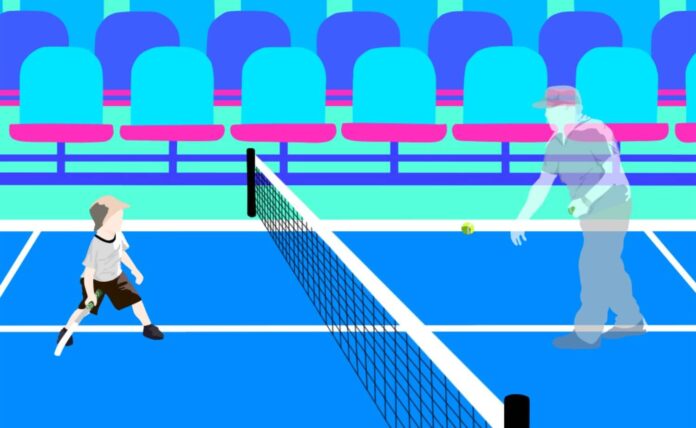Though my grandpa lived a long and fulfilling life, I still felt he went too soon. When he gave me some of his family heirlooms in his last years, I remember thinking it was the beginning of a long and enduring friendship. In truth, he wanted to be the one to give them to me and knew his window of opportunity was closing. While I cherish the personal items he gave me, they are not what connect us most deeply — instead, it’s our shared love of tennis that keeps his memory alive.
How do we stay connected with loved ones who have passed away? I can’t give you a complete answer, but I know it can be more than visiting a gravesite or flipping through a photo album. Because staying close to lost loved ones means more than just paying one’s respects — it means remembering the interests you shared with them. Shared passions are often the bedrock of relationships, and by continuing those passions, we can keep those precious bonds alive.
My grandpa was a stellar tennis player. He played first doubles for Whitman College and competed in club tournaments for the rest of his life, amassing a collection of trophies which he gave to me before he passed away. Most importantly, he taught me how to play tennis — the foundations of my technique and love for the game came from him.
While he died just a couple of weeks into my freshman year of high school, I knew it wasn’t the end of our relationship. From then on, I felt even more connected to him through the game, as if he were sitting on the bleachers at every match, quietly urging me to play my best tennis. As much as I loved playing the sport for my own sake, it served a greater purpose; it kept my bond with him alive. Maybe that’s why I feel a sense of guilt when I take a break from tennis — as if my grandpa is gently reminding me that my rackets have gathered too much dust.
Seven years after his passing, I feel closer to him than ever before. When he died, I was already playing competitive tennis. However, it was the year after his passing that I fell in love with the sport — first by watching it, then by coaching it and eventually by reading every book about tennis I could find. It’s as if his death set something in motion, as though he passed on all the energy poured into the game to me. People often ask how I manage to chase down difficult shots or endure long points. The answer is simple: I’m not just running after balls — I’m playing for my grandpa.
I don’t believe our relationships with loved ones end the moment they take their last breath. As long as we keep living, those relationships live too — they fade only when we stop nurturing them. Every time I step onto a tennis court, I’m not just thinking of my grandpa; I’m deepening my relationship with him. I don’t just feel closer to him in a metaphysical sense — I feel like I understand him better as a person.
We are so future-oriented that we often fail to appreciate what our past has to offer us. Instead of tying our past to our present, we separate the two into discrete categories. This separation leads us to silo our past relationships to the point of neglect. By forgetting our shared affinities, we resign our loved ones to photo albums and family movies. But relationships are not only meant to be reminisced on — they exist on a continuum. We can treat all of our relationships with the same sense of value and care, whether or not the person is still with us.
I know my relationship with my grandpa does not represent everyone’s experiences. Some relationships are more complicated or tumultuous. However, I believe people can mend broken relationships after someone’s death. Death might even be the catalyst for reconciliation, and shared passions can play an important role in that process.
Sometimes, people don’t have much in common with their loved ones. But any pastime can bring people closer to those they have lost. It doesn’t need to be some elaborate, deeply held passion like the one I share with my grandpa. Any small thing is enough to connect kindred spirits, as long as it is truly shared.
Last weekend, I played tennis with one of my former professors. On the surface, it was an ordinary hitting session — we stretched, warmed up at the service line and played together until our legs gave out. However, there was a surreal quality to it. My professor’s old-school playing style, with his one-handed backhand, unblemished slices and sturdy volleys, made me think of my grandpa. In his younger years, he probably played just like him, albeit with a wooden racket.
This hitting session reminded me that my grandpa is ever-present in my life. He’s the reason I play the game — the force that keeps me connected to it. We share something that makes him feel more real to me now than he ever did before. As long as I keep playing, I know I’ll never forget him.
Contact Nick Dobbs at ndobbs@oxy.edu
![]()
































Well done Nick! I really enjoyed that : – )